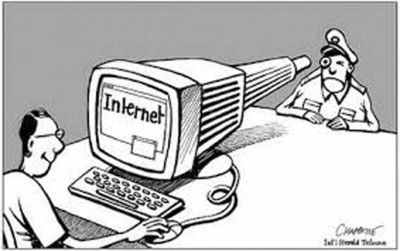
Flux In Net’s Back End
The Internet today provides billions of individuals across the planet with access to an expanding, changing array of information, which in turn serves as the foundation for the socioeconomic phenomenon known as the Information Age. The ‘back end’ of this electronic net delivers names and addresses for distinct sites operated by individuals, usually collected into a group to carry out the numerous functions of sites or websites. That back end now may change how it operates, or in other words, it is in a state of flux.
In late 2012 an initiative in the UN World Conference on International Communications pushed by Russia and China as a telecommunications initiative sought to wrest control of the net’s back end from the US. The proposal sounded innocent, even worth consideration, but fortunately the idea of change raised the hairs on someone’s neck. http://www.theverge.com/2012/12/9/3747402/countries-propose-greater-itu-influence The 2012 effort to let the UN politicize Internet Protocol (IP) addresses and domain name registrations failed, but interest in the idea persists.
So how are IP addresses and domain names managed today? The Internet Corporation for Assigned Names and Numbers (ICANN) system began in 1998 when the early manager of IP addresses and domain names, Network Solutions, amended its organizing agreement. ICANN, under a contract the the US Department of Commerce, National Telecommunications & Information Administration, became responsible for the back end of the Internet with revisions to its charter as recent as 2009. Under a Registration Accreditation Agreement (RAA) made in 2009, enforcement of registration rules would be applied to all Internet users worldwide.
Now a powerful but small group of world governments seek to take control of the that back end process, with the clear purpose of imposing political criterion for how Internet names and numbers work in the background.
To analysts at HFS, the current state of flux in the net’s back end may determine for the foreseeable future how the world interacts electronically through the Internet. Further, as increasing political agendas flood the floor of debate and negotiations, alternatives to government controlled systems will become an urgent priority among those aware of the debate. With disclosures about NSA spying saturating the cyber world, the US has lost valuable credibility, and others now play on the uncertainty associated with lack of moral leadership.
What do you think?
